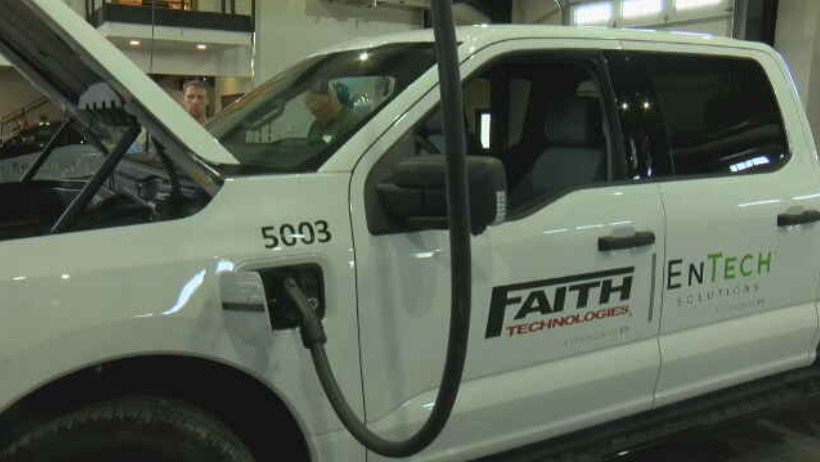Faith technologies play a pivotal role in empowering industries by combining advanced innovation, expertise, and sustainable solutions. These technologies enable businesses to thrive while maintaining a strong commitment to efficiency, safety, and green practices.
This article dives deep into what faith technologies entail, their innovative solutions, and how they are shaping industries across the globe. Read on for actionable insights into how these solutions could benefit your business.
Visit TurboTechify for more technology updates and insights.
What Are Faith Technologies?
Faith technologies refer to a range of cutting-edge engineering, electrical, and sustainable solutions aimed at optimizing industry operations. These technologies often intersect numerous sectors such as construction, energy, automation, and information technology. The key focus lies in innovation balanced with ecological sustainability to ensure long-term growth.
Key Areas of Focus in Faith Technologies
- Engineering Excellence
Advanced engineering solutions ensure efficiency in system design, production, and delivery across industries.
- Energy Optimization
Faith technologies provide renewable energy options and solutions for enhancing energy grid efficiency.
- Smart Automation
Leveraging IoT and AI, faith technologies integrate automation into processes to maximize productivity.
- Sustainability Initiatives
A major emphasis is placed on reducing carbon footprints through energy-efficient strategies and systems.
Benefits of Faith Technologies
Faith technologies have a wide variety of applications, delivering tangible benefits across industries. Here’s a closer look at how adopting these innovations can positively impact businesses:
- Improved Operational Efficiency
Automating repetitive tasks reduces manual errors and streamlines processes.
- Enhanced Safety
Intelligent systems and safety-oriented designs ensure compliance with workplace regulations and minimize risks.
- Energy and Cost Savings
Optimized energy use means lower power bills and improved ROI on sustainable investments.
- Sustainability Goals Achieved
Focus on environmentally responsible practices aids in achieving corporate and regulatory sustainability targets.
A Quick Glimpse at the Benefits of Faith Technologies
|
Benefit |
Description |
|---|---|
|
Cost Efficiency |
Minimizes energy use and associated costs. |
|
Boost in Productivity |
Automated technologies shorten project timelines and improve performance. |
|
Enhanced Safety |
Systems are designed to avoid hazards and ensure workplace safety compliance. |
|
Environmental Impact |
Innovations built to minimize ecological footprint. |
Fields Leveraging Faith Technologies
Faith technologies are transforming various sectors through specialized expertise. Below are the top industries benefiting from this revolution:
1. Construction and Infrastructure
-
- Use of renewable energy systems such as solar panels and wind turbines.
- Smart buildings designed with IoT-enabled systems for enhanced energy management.
2. Manufacturing
-
- Automated machinery optimized for precision and speed.
- Maintenance systems based on predictive analytics to reduce downtime.
3. Energy Sector
-
- Advanced power grid designs incorporating green energy solutions.
- Battery storage systems for efficient energy backup and distribution.
4. Healthcare
-
- IoT applications in medical devices to improve patient monitoring.
- Use of energy-saving strategies for hospital facilities.
5. Data Centers and IT
-
- Deployment of renewable energy to meet high energy demands.
- Advanced cooling systems to maintain server performance.
Each of these industries benefits from innovations that reduce costs, conserve resources, and prioritize safety.
Innovations in Faith Technologies
Faith technologies are powered by cutting-edge advancements that promise a smarter, safer, and greener future. Here are some innovations worth noting:
1. IoT and Connectivity
Combining interconnected systems with automation, IoT has revolutionized industry operations. Examples include smart lighting and temperature regulation in buildings.
2. Artificial Intelligence (AI)
AI enables predictive maintenance in manufacturing units, saving time and reducing costs. Data-driven algorithms help businesses make efficient operational decisions.
3. Renewable Energy Integration
From solar to wind energy, integration of renewables ensures reduced dependency on conventional sources.
4. Data Analytics and Monitoring
Advanced monitoring tools provide real-time data for analyzing performance and troubleshooting.
Advanced Automation Example
Consider a manufacturing plant using faith technologies. Automated sensors detect inefficient energy use and adjust machine settings in real-time, leading to significant energy savings.
Faith Technologies and Sustainability
Sustainability is at the core of faith technologies. Companies adopting these solutions not only reduce waste but also benefit from an improved industry image.
Steps Towards Sustainability
- Renewable Energy Adoption: By switching to solar or wind energy, businesses can drastically cut fossil fuel use.
- Energy-Efficient Designs: Smartly engineered buildings minimize energy consumption without sacrificing output.
- Eco-Conscious Practices: Combining eco-friendly materials in production enhances sustainability metrics.
Sustainability Metrics to Track
|
Metric |
Description |
|---|---|
|
Carbon Footprint |
Measure emissions reductions post-implementation. |
|
Energy Consumption |
Track decreased energy usage from sustainable practices. |
|
Waste Reduction |
Monitor the reduction in non-recyclable resource utilization. |
Why Sustainability Matters
Sustainability improves not just environmental compliance but also helps businesses align with consumer preferences for eco-conscious brands.
Future of Faith Technologies
The future trajectory of faith technologies is bright, with advancements expected to cross unimaginable boundaries. Trends that are likely to dominate include:
- Smart City Development
Cities equipped with integrated smart systems for managing water, power, and waste resources.
- Adoption of Zero-Energy Buildings
Buildings designed to consume less energy while generating the equivalent amount from renewables.
- Advancement in Renewable Energies
Breakthroughs in solar, wind, and hydrogen energy technologies are expected to become significant drivers of industry growth.
Challenges and Opportunities
While faith technologies come with immense advantages, the high initial cost and technological complexity may pose barriers. However, increasing awareness and government incentives are making adoption faster than anticipated.
How to Utilize Faith Technologies for Your Business
- Assessment of Current Infrastructure
-
- Identify lagging processes and replace them with automated systems.
- Seek Expert Consultation
-
- Consult with sustainability engineers specializing in faith technologies.
- Pilot Program Implementation
-
- Deploy solutions on a small scale to evaluate real-world ROI.
- Full-scale Adoption
-
- Train staff on new systems and scale up gradually.
Conclusion
Faith technologies are driving a paradigm shift across industries by providing innovative, sustainable, and cost-effective solutions. By investing in these technologies, businesses not only gain operational excellence but also contribute to the global sustainability movement.
Take the next step by exploring how these technologies can transform your operations. Learn more about groundbreaking faith technologies and related innovations on TurboTechify.


